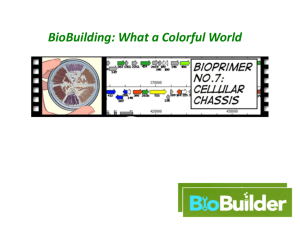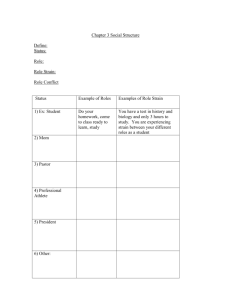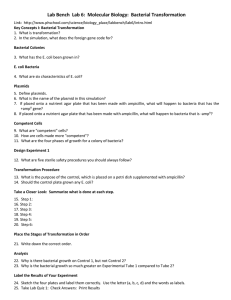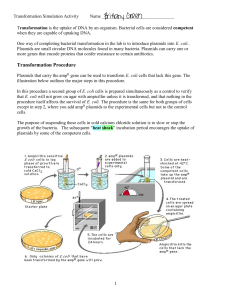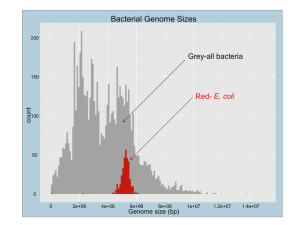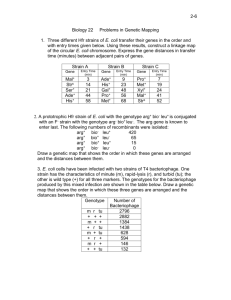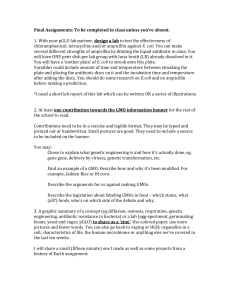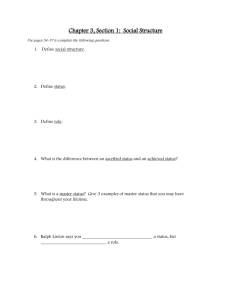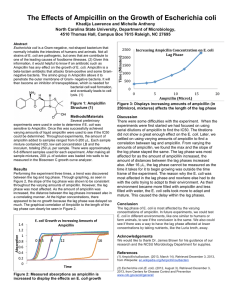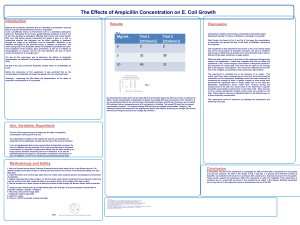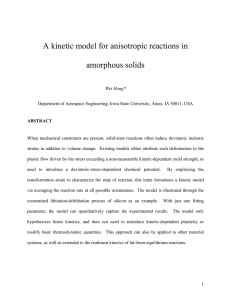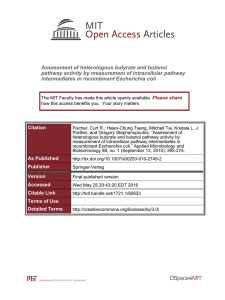Echromi_lab_intro
advertisement
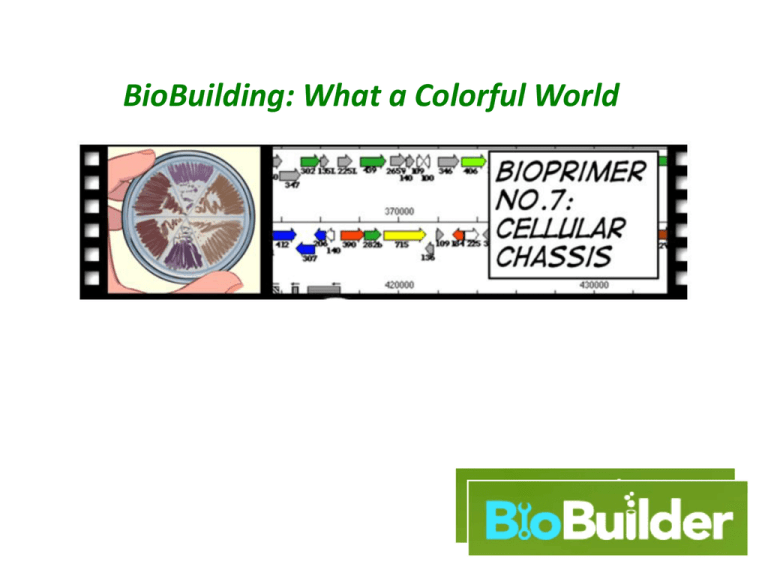
BioBuilding: What a Colorful World Griffith and Bacterial Transformation Genetic Engineering Restriction Enzymes and sticky ends Why would we want The plasmid to have An ampicillin resistence Gene? An engineering paradigm The focus of this lab Design Build Test There are two major laboratory strains of E. coli: The K 12 strain The B strain A biology question: Do they behave the same? In Synthetic Biology, the cell into which the genetic device is inserted is known as the Chassis The K 12 strain The B strain An engineering question: If we insert the same device into each chassis, will it behave the same? In 2009, the Cambridge iGEM team altered an operon found in Chromobacterium and inserted it into E. coli. They found that they could organize the operon in one way to get a green color and in another way to get a purple color. They moved these devices into E. coli because, well, everyone loves working with E. coli… But will these devices work the same in the different strains of E. coli? We will insert the green color generating device into each strain. Will we get the same colors and appearance of the bacteria? We will insert the purple color generating device into each strain. Will we get the same colors and appearance of the bacteria? Inserting genes into a cell is known as Transformation: We have the operons on plasmids that have been made for us. We need to make the bacterial cells competent to take up the plasmids. Transformation is tough on the bacteria so we need to be very careful. The procedure (summarized): Scrape up a patch of cells of each strain. Add CaCl2 transformation buffer and keep the cells on ice. Divide the cells of each strain into three vials. One will get the purple DNA plus a gene for ampicillin resistance One will get the green DNA plus a gene for ampicillin resistance One will get no DNA. Why? The procedure (summarized): Heat the cells for exactly 90 seconds. Add LB media to help the cells recover. Plate the cells on LB plates containing ampicillin. Why the ampicillin? The procedure (summarized): Then we incubate the cells overnight. Tomorrow we will look for purple and green colonies. Any guesses as to what we will see? We will also calculate how efficient the transformation is. Report your data. You will need to set up a data table like this:
